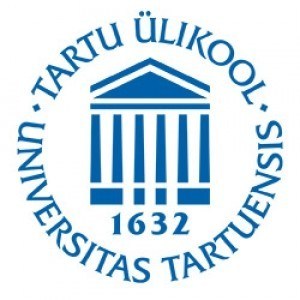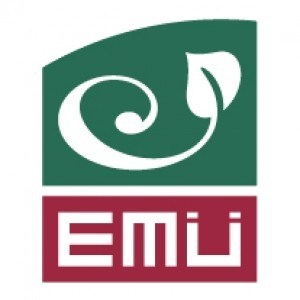Photos of university / #tallinnatehnikakorgkool
The Bachelor of Business Administration in Tourism at the University of Applied Sciences offers students a comprehensive education designed to prepare them for dynamic careers in the tourism and hospitality industries. This program combines foundational business knowledge with specialized training in tourism management, marketing, and sustainable development, ensuring graduates are well-equipped to meet the evolving needs of global tourism markets. Throughout the course of study, students engage in a blend of theoretical learning and practical application, including internships, project work, and case studies that reflect real-world challenges faced by tourism organizations today. The curriculum emphasizes key areas such as strategic planning, customer service skills, digital marketing, cultural awareness, and environmental sustainability, fostering a well-rounded skill set necessary for leadership roles. The program also encourages the development of soft skills like communication, teamwork, and problem-solving, which are vital in the fast-paced and diverse tourism sector. With a focus on innovation and entrepreneurship, students are supported in developing their own business ideas or improving existing services within the industry. The university's modern facilities, industry partnerships, and experienced faculty members provide a stimulating learning environment that promotes academic excellence and practical competence. Graduates of this program will be prepared for a variety of positions in travel agencies, tour operators, hospitality management, event planning, and tourism development agencies, both locally and internationally. They will also possess the knowledge and skills to contribute to sustainable tourism practices, ensuring the tourism sector's growth benefits communities, economies, and the environment. Overall, the Bachelor of Business Administration in Tourism aims to produce skilled professionals capable of leading digital transformation, driving innovation, and fostering sustainable growth in the global tourism industry.
The Bachelor’s Degree Program in Business Administration with a Major in Tourism at the University of Applied Sciences offers a comprehensive and practical education designed to prepare students for dynamic careers in the tourism and hospitality industries. The curriculum combines fundamental business principles with specialized knowledge of tourism management to equip graduates with the skills necessary to succeed in a competitive global market. Throughout the program, students are engaged in a mix of theoretical coursework, practical training, and real-world projects that foster critical thinking, problem-solving, and leadership abilities.
The program covers core subjects such as economics, marketing, management, accounting, and information technology, providing a solid foundation in business fundamentals. Specialized courses focus on tourism management, including topics like sustainable tourism development, event management, hospitality operations, travel agencies and tour operations, customer service, and destination marketing. Students also gain hands-on experience through internships, industry visits, and collaborative projects with hospitality and travel organizations, allowing them to apply their knowledge in practical settings.
In addition to technical skills, the program emphasizes soft skills such as communication, intercultural competence, teamwork, and entrepreneurship, which are essential for successful careers in international tourism environments. Students are encouraged to develop innovative solutions for current challenges facing the tourism sector, including digital transformation and sustainability issues. The curriculum is regularly updated in consultation with industry experts to reflect the latest trends, technologies, and market demands.
Graduates of this program are well-equipped to pursue various roles within the tourism industry, including travel consultant, event manager, hospitality manager, tourism marketing specialist, and destination manager. They also have the option to continue their education through master's programs or specialize further in areas like hotel management, event planning, or sustainable tourism development. The University of Applied Sciences' strong connections with industry partners provide valuable networking opportunities, internships, and job placement support, ensuring students are prepared for successful careers after graduation. Overall, this program provides a balanced blend of academic knowledge and practical experience, positioning graduates for leadership roles in the vibrant and evolving field of tourism.
Program requirements for the Bachelor’s Degree in Business Administration – Major in Tourism typically include the completion of a specified number of ECTS credits, often totaling around 180 to 240 credits, depending on the country's educational standards. Students are expected to complete foundational courses in business administration, such as Principles of Management, Marketing, Economics, and Finance, alongside specialized courses in Tourism Management, Hospitality Industry, Travel Planning, and Sustainable Tourism. Practical training or internships are usually mandatory to gain real-world experience and enhance employability. Language proficiency requirements may include a certain level of English, often demonstrated through standardized tests like TOEFL or IELTS, to ensure students can operate effectively in international tourism contexts. Additionally, students may need to submit a thesis or capstone project that demonstrates their ability to apply theoretical knowledge to practical situations in the tourism sector. Participation in seminars, workshops, and industry visits is encouraged and sometimes required to deepen understanding of current trends and challenges in tourism. Students should also meet general university admission criteria, which can involve entrance examinations or interview assessments. It is important that applicants have a strong interest in the tourism industry, good communication skills, and the ability to work in multicultural teams. Foreign applicants may be required to provide proof of language skills, and some programs may offer preparatory courses for students needing additional language or academic support. Outstanding academic performance, demonstrated through transcripts, may be an additional admission criterion. The program is designed to prepare students for careers in tourism management, event planning, travel consultancy, and hospitality entrepreneurship, equipping them with technical skills, industry knowledge, and managerial competencies essential for the dynamic global tourism environment.
The University of Applied Sciences offers a comprehensive financing plan for the Business Administration - Major in Tourism program to support students throughout their studies. Tuition fees vary depending on the student's nationality and residency status, with international students typically paying higher rates than domestic students. The university provides detailed information on the cost of tuition per semester or academic year, allowing prospective applicants to plan their finances accordingly. In addition to tuition, students should consider additional expenses such as accommodation, textbooks, supplies, health insurance, and personal living costs, which may be managed through a variety of funding sources.
The university offers several financial assistance options, including scholarships specifically aimed at students enrolled in this program. These scholarships may be merit-based, need-based, or awarded for excellence in academic performance or extracurricular activities. To be eligible, students usually need to submit an application along with supporting documents, and selection criteria are clearly outlined by the university’s financial aid office. Furthermore, the university collaborates with government agencies and private organizations to facilitate access to grants or sponsorships for students pursuing tourism-related studies.
Students are encouraged to explore part-time work opportunities, which are often permitted and facilitated through university career services. These jobs not only help students earn money but also gain relevant work experience in the tourism sector. International students particularly benefit from employment options that allow them to practice their language skills and integrate more effectively into the local community. Moreover, the university provides guidance on student loans and external funding sources, with detailed advice on applying for financial aid in their home countries or internationally.
The university’s financial support system is designed to make the Business Administration - Major in Tourism program accessible to a diverse range of students, promoting inclusive education. Prospective students are advised to contact the university’s admissions and financial aid offices early to discuss available funding and complete necessary applications. Overall, the university’s comprehensive approach to financing aims to reduce economic barriers and enable students to focus on their academic and professional development in the tourism industry.
The Bachelor’s degree program in Business Administration with a major in Tourism at the University of Applied Sciences is designed to provide students with comprehensive knowledge and practical skills necessary for a successful career in the dynamic and competitive tourism industry. The program emphasizes a solid foundation in general business principles, including management, marketing, finance, and strategic planning, tailored specifically to the tourism sector. Students learn about the various facets of tourism, such as hospitality management, travel planning, tour operations, and sustainable tourism practices, ensuring they are well-equipped to meet the challenges of an ever-evolving industry.
Throughout the course of study, students are engaged in a combination of theoretical instruction and applied learning. They participate in case studies, projects, and internships that offer real-world experience, enabling them to apply their knowledge in practical settings. The curriculum also covers language proficiency, intercultural communication, and customer service excellence, which are vital skills in international tourism markets. Emphasis is placed on digital skills and innovative marketing techniques, reflecting current trends such as online booking systems, social media promotion, and data analytics within the tourism industry.
The program is structured over multiple semesters, typically lasting three years, culminating in a bachelor's degree. It involves both coursework and practical training, including mandatory internships with tourism companies, hotels, travel agencies, or event management firms. Such internships aim to enhance employability and provide valuable industry insights. The university supports students with career counseling and networking opportunities, fostering connections with industry professionals and alumni.
Graduates of this program are prepared for a wide range of careers, including roles in hotel and resort management, tour operations, destination marketing organizations, event planning, and travel consultancy. They possess the entrepreneurial skills necessary to start their own tourism-related businesses or work within large multinational corporations. Additionally, the program encourages interdisciplinary thinking, ethical decision-making, and sustainable development practices to ensure that tourism growth benefits local communities and preserves the environment.
Faculty members are experienced professionals and researchers in tourism and business administration, contributing to a high-quality educational experience. The environment encourages innovation, teamwork, and leadership development, essential attributes for future managers in the tourism sector. The University of Applied Sciences maintains partnerships with industry partners and offers opportunities for exchange programs, further enhancing students' international perspectives and cultural awareness.
Overall, the Business Administration – Major in Tourism program at the University of Applied Sciences aims to cultivate knowledgeable, skilled, and socially responsible professionals who can thrive in the global tourism industry. Graduates leave with a comprehensive understanding of business principles tailored to tourism, practical experience, and the ability to adapt to industry changes, positioning them for long-term career success in this vibrant sector.


